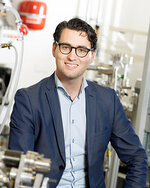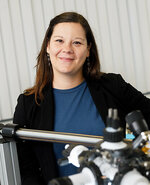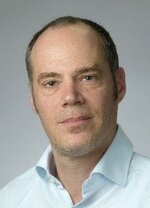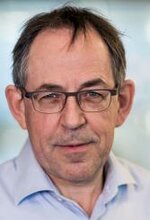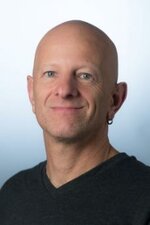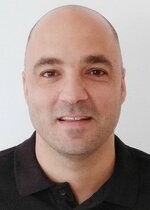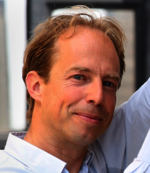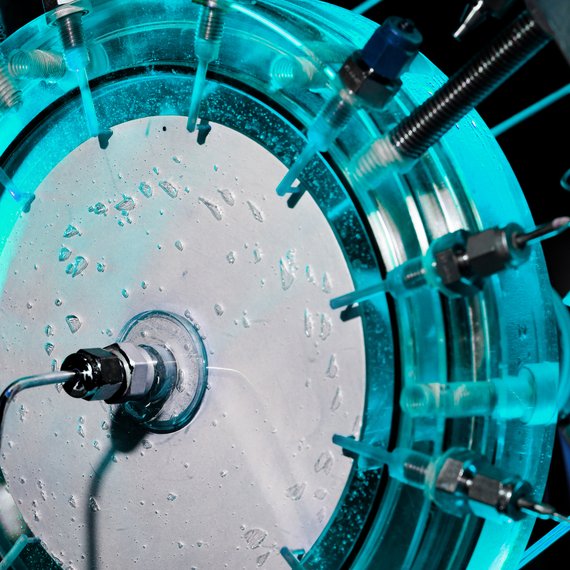Date
Wednesday January 13, 2021 from 10:00 AM to 12:00 PMLocation
OnlinePrice
FreeCET time | PROGRAM - Dutch Israeli renewable energy conversion and storage - mini symposium |
|
|
10:00-10:05 | Welcome notes |
| Dr. Racheli Kreisberg, Innovation Attaché, Netherlands Embassy in Israel and Israeli Dutch Innovation Center (IDIC) Marieke Monroy, Deputy Head of Mission at Embassy of the Kingdom of the Netherlands in Israel Prof. Raz Jelinek, Vice President and Dean for Research & Development, cooperation between the Netherlands and Ben Gurion University’s Sustainable Energy initiative |
10:05-10:30 | Introduction to renewable energy activities at EIRES and at BGU and possible cooperation opportunities |
| Dr. Mark Boneschanscher, Managing Director Eindhoven Institute for Renewable Energy Systems, Eindhoven University of Technology Prof. Raz Jelinek, Vice President and Dean for Research & Development, cooperation between the Netherlands and Ben Gurion University’s Sustainable Energy initiative |
10:30-10:45 | Solar energy research at BGU |
| Prof. Iris Visoly-Fisher, Dept. of Solar Energy and Environmental Physics, Swiss Institute for Dryland Environmental and Energy Research, Blaustein Institute for Desert Research, Sede Boqer campus, Ben Gurion University of the Negev |
10:45-11:00 | Developments in solar research at TU Eindhoven |
| Prof. René Janssen, Molecular Materials and Nanosystems, Eindhoven University of Technology |
11:00-11:15 | Thermal energy conversion and storage |
| Prof. Yaniv Gelbstein, Dept. of Materials Eng., Engineering Sciences, Ben Gurion University of the Negev |
11:15-11:30 | Testing of PV in relevant conditions (PV-T) |
| Dr. Roland Valckenborg from TNO-SEAC |
11:30-11:45 | Chemistry of Energy storage |
| Prof. Meny Shalom, Dept of Chemistry, Natural Sciences, Ben Gurion University of the Negev |
11:45-12:00 | Chemistry of Energy storage |
| Dr. Marta Costa Figueiredo, Chemical Engineering and Chemistry, Eindhoven University of Technology |
BACKGROUND
The rapidly growing amount of renewable energy generated from wind and sun is increasing the need for flexibility to keep supply and demand in balance. Where the supply of fossil energy is more or less constant, that of sun and wind varies greatly. By converting and storing this renewable energy on a large scale in times of surplus production, its consumption can be shifted to moments in time when there is a shortage. The Netherlands is excellently positioned to realise large-scale storage with innovative conversion and storage technologies and infrastructure. This is particularly necessary in order to make efficient use of the rapidly growing amount of electricity that will soon be generated offshore and to prevent shortages occurring when the wind is not blowing and the sun is not shining. Israel is also developing innovative energy conversion and storage technologies.
The Ben-Gurion National Solar Energy Center of Ben Gurion University of the Negev is dedicated to conducting renewable energy research and its graduate programs. The research scope ranges from harvesting solar energy to storage, material science, optics, and surface physics, such as high concentration photovoltaics, physics of solar cells at very high efficiency, organic photovoltaics, highly concentrated electrolytes for super-capacitors and batteries, light-matter reactive metamaterials, and electro-molecular surfaces.
The Eindhoven Institute for Renewable Energy Systems (EIRES) is the Technical University of Eindhoven’s answer to the broad, multidisciplinary question that is the energy transition. EIRES facilitates the collaborative development and swift deployment of new technologies and devices by bringing together TU/e researchers working on materials, systems, and processes for energy storage and conversion.
POSSIBLE FUNDING SCHEMES FOR R&D COOPERATION
Green Deal Call: https://ec.europa.eu/info/sites/info/files/research_and_innovation/events/presentations/area2_topic_2.1_innovative_land-based_and_offshore_re_technologies.pdf and Funding & tenders (europa.eu) and Horizon Europe Cluster 5.
TARGET AUDIENCE
The target audience includes academic researchers as well as startups and SMEs in the field of renewable energy conversion and storage, specifically in solar energy, thermal energy and chemical/ atalytic energy storage/ fuels.
BIOSKETCHES
Dr. Mark Boneschanscher | Mark Boneschanscher is the managing director of the Eindhoven Institute for Renewable Energy Systems (EIRES). He believes that both science and industry have a crucial role to play in the energy transition. He is therefore actively involved in setting up both scientific as well as public-private collaborations in EIRES. His goal is to speed up the energy transition by industrialization of innovative renewable energy systems.
Dr. Marta Costa Figueiredo | Marta Costa Figueiredo is Assistant Professor of Electrocatalysis at Eindhoven University of Technology since April 2019. She obtained her PhD in electrocatalysis, science and technology in 2012 at the University of Alicante, Spain under the supervision of Prof. Juan Feliu. After that, she was a postdoctoral researcher at different Universities in Europe such as Aalto University (Finland), Leiden University and University of Copenhagen. Before joining TU/e, Marta worked in the industry as Jr Scientist at Avantium (Amsterdam). In Eindhoven, her research is devoted to electrocatalysis and electro(catalytic)synthesis for sustainable processes and production of high value chemicals.
Prof. Yaniv Gelbstein | Yaniv Gelbstein is specialized in thermoelectric (TE) heat-to-electricity conversion, since 1997. In the recent years, after serving as the Head of the Unit of Energy Engineering, he serves as the Head of the Department of Materials Engineering, both at Ben-Gurion University of the Negev. The TE research group headed by Prof. Gelbstein is fully dedicated on achieving the entire supply chain starting from basic science activities on development the next novel thermoelectric materials, including silicides, half-Heusler and IV-VI (namely, PbTe, GeTe, SnTe) alloys, reaching high TE figure of merit, ZT, values of up to ~2.2, to the development of highly efficient TE prototype converters, and hybrid photovoltaic-thermoelectric systems.
Prof. René Janssen | René Janssen is a university professor in chemistry and physics at the Eindhoven University of Technology working on molecular semiconductors and their application in opto-electronic devices. His research combines design and synthesis of new materials, with optical spectroscopy, electrochemistry, morphological studies, and the fabrication and opto-electronic characterization of devices. I recent years focus has been on the developing organic and perovskite solar cells, solar fuels, and energy storage.
Prof. Raz Jelinek | Raz Jelinek completed his bachelor's degree in chemistry (summa cum Laude) at the Hebrew University of Jerusalem in 1988, continued his doctorate in chemistry at the University of California, Berkeley (1993), and was a Cancer Research Institute postdoctoral fellow at the University of Pennsylvania. In 1996 he took a faculty position at the Department of Chemistry at BGU and since 2019 he is the Vice President and Dean for R&D at BGU. Raz's research interests range from the molecular mechanisms of amyloid diseases, through the development of chemical and biological sensors, food chemistry, nanoparticles, advanced optical materials, and energy storage systems.
Prof. Menny Shalom | Menny was born in 1979 in Tel Aviv, Israel. Menny received his BSc in Chemistry in 2007 from Bar-Ilan University. Afterward, he continued his MSc and PhD in the lab of Prof. Arie Zaban in Bar-Ilan University, researching quantum dot sensitized solar cells. For his postdoc, he joined the Max Planck Institute of Colloids and Interfaces (MPI), Germany, as a Minerva fellowship fellow. From 2013 to 2016, he was appointed as a group leader in MPI and since the end of 2016 he is a Professor at the Ben‐Gurion University of the Negev, Israel. His group is focused on the synthesis of new materials for photo‐electrochemical cells and as electrocatalysts for solar fuel production.
Dr. Roland Valckenborg | Roland Valckenborg started his professional career in 2001 as product developer in the R&D-department of Canon-Océ, a large printer multinational, working on a broad range of topics from crazy idea’s (TRL 1) till prepare for certification (TRL 8). In 2009, he shifted his career to Renewable Energies and founded both an NGO and a company in Tanzania. He started with locally built small scale wind turbines for empowering the poor people in the off-grid rural areas. Growing the company with high-end solar-wind-diesel hybrid systems for local industry and tourism. In 2013, he returned to the Netherlands to focus on solar energy applications. As project leader and business developer of TNO, he has worked on a variety of new innovative projects in the built environment. Moreover, he is the founder and project leader of the outdoor performance research facility called SolarBEAT, in Eindhoven, the Netherlands.
Prof. Iris Visoly-Fisher | Iris Visoly-Fisher is the head of the Department of Solar Energy and Environmental Physics, at the Swiss Institute for Dryland Environmental and Energy Research, Jacob Blaustein Institutes for Desert Research, Ben-Gurion University of the Negev, Sede Boqer campus. Her research interests include materials for renewable energy production and storage, photovoltaics, optoelectronics and organic electronics; surface science; and characterization through a ‘bottom up’ approach – from the properties of a single building block to understanding the system’s behavior.
